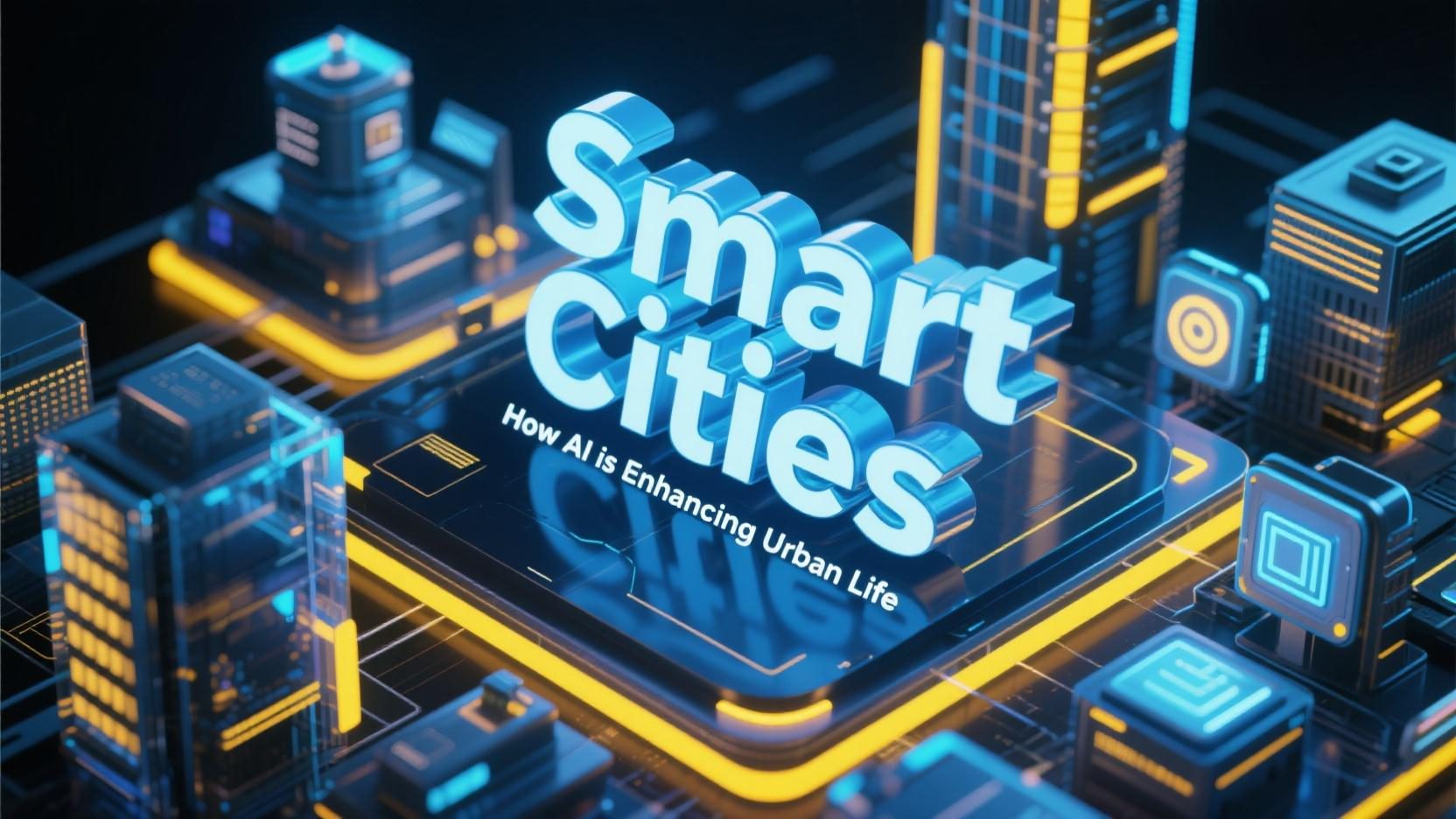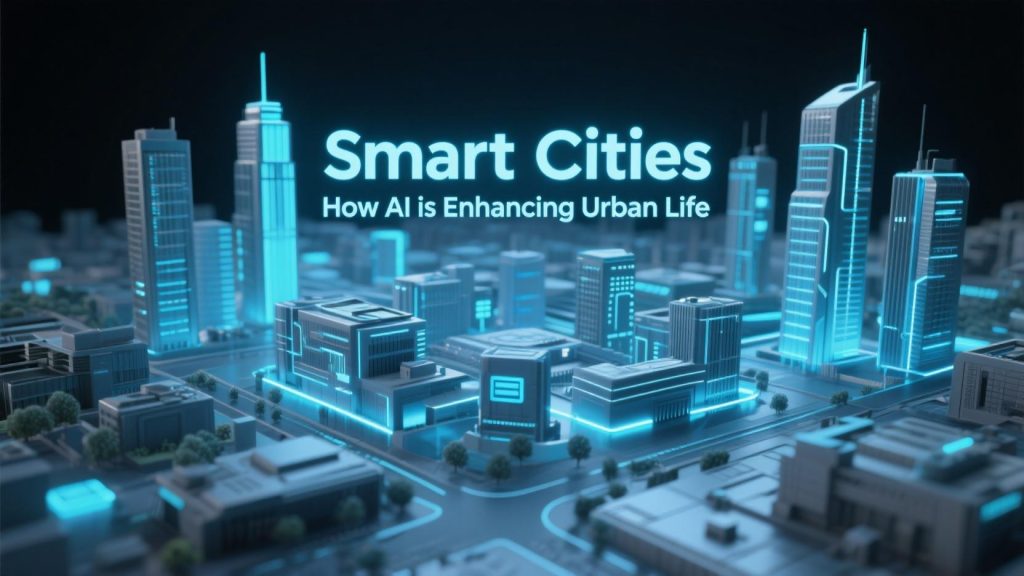
AI is at the heart of smart city initiatives, significantly enhancing urban management, sustainability, and quality of life.
Smart traffic management systems use AI to optimize traffic flows, reducing congestion and emissions by dynamically adjusting traffic signals and predicting peak times. Intelligent infrastructure, including AI-enabled energy management systems, significantly improves energy efficiency, reducing costs and environmental impacts by managing demand and integrating renewable sources.

AI also powers predictive maintenance, ensuring urban infrastructure such as water systems, bridges, and power grids remain safe and functional by forecasting failures before they occur. Furthermore, smart surveillance systems and predictive policing tools improve public safety and emergency response effectiveness by analyzing patterns to prevent crime and allocate resources efficiently.
While integrating AI into urban systems involves significant investments and data privacy concerns, the benefits are substantial. AI-driven smart cities promise sustainable development, efficient resource use, and enhanced urban living experiences for citizens worldwide, shaping the future of urbanization in an increasingly connected world.






